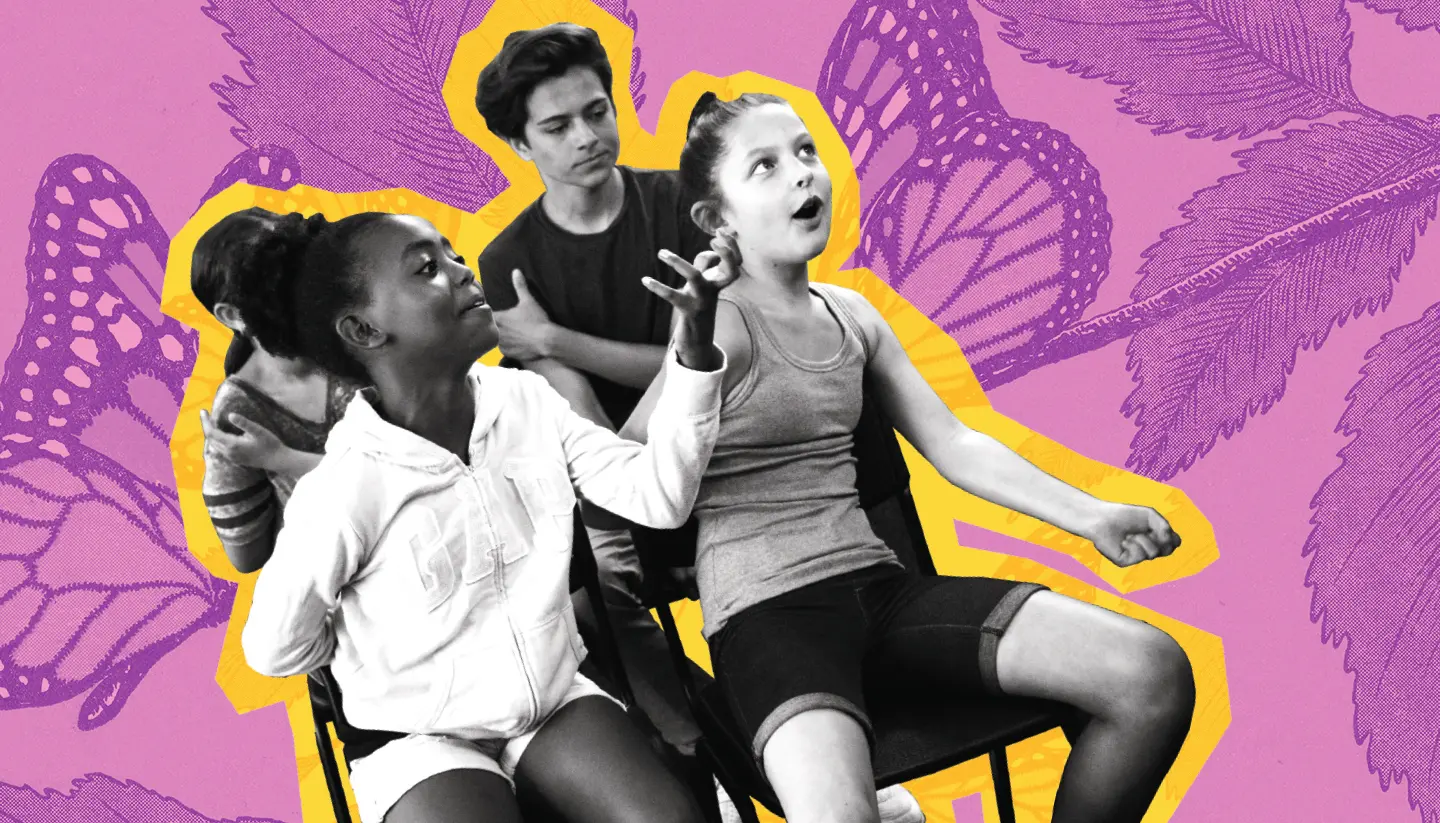
ALL CLASSES
•kids-and-teens-improv
Discover Improv For Kids & Teens
Kid’s Improv Classes
The Second City welcomes kids too! Improv classes for kids and teens are led by instructors who are experienced in teaching young students. Improv for kids is a fun way to be creative and to build confidence. Classes are available for any experience level.

Improv (Ages 7-10)
Improv for ages 7 – 10 is for kids who want an introduction to improvisation. This class uses the tenets of improv like agreement, listening, and emotions to teach kids basic life skills. It gets them out of their heads and active while showing them new ways they can work with and learn from others. Students meet kids from other schools and neighborhoods and from lasting friendships. This class provides an opportunity to create improv and work with kids in activities that are not sports related.
This class teaches the building blocks of basic improv and introduces kids to the fundamental aspects of stage craft. The games and exercises develop emotional intelligence. The focus here is put on physical expression as well as verbal communication. The kids will learn how to work on a big project and have fun with others.
Students will be led through some basic improv exercises and games. These are meant to be fun and focus on communication and teamwork. Kids will work on being a good ensemble member as well as developing their individual skills in a low-pressure environment. There are some aspects of performing involved, but students are not asked to perform on stage.

Improv (Ages 14-18)
Improv for ages 14-18 is for kids who want an introduction to improvisation. This class uses the tenets of improv like agreement, listening, and emotions to teach kids basic life skills. It gets them out of their heads and active while showing them new ways they can work with and learn from others. Students meet kids from other schools and neighborhoods and form lasting friendships. This class provides an opportunity to create improv and work with kids in activities that are not sports related.
This class teaches the building blocks of basic improv and introduces kids to the fundamental aspects of stage craft. The games and exercises develop emotional intelligence. The focus here is put on physical expression as well as verbal communication. The kids will learn how to work on a big project and have fun with others.
Students will be led through some basic improv exercises and games. These are meant to be fun and focus on communication and teamwork. Kids will work on being a good ensemble member as well as developing their individual skills in a low-pressure environment. There are some aspects of performing involved, but students are not asked to perform on stage.
This course is intended for students in high school, grades 9-12.
On the last day of class, the final 15-20 minutes of class time feature an in-class presentation by students that parents/guardians are welcome to attend. These are in-classroom and not a ticketed event, so space is very limited. Dates and times subject to change.

Improv (Ages 11-13)
Improv for ages 11-13 is for kids who want an introduction to improvisation. This class uses the tenets of improv like agreement, listening, and emotions to teach kids basic life skills. It gets them out of their heads and active while showing them new ways they can work with and learn from others. Students meet kids from other schools and neighborhoods and from lasting friendships. This class provides an opportunity to create improv and work with kids in activities that are not sports related.
This class teaches the building blocks of basic improv and introduces kids to the fundamental aspects of stage craft. The games and exercises develop emotional intelligence. The focus here is put on physical expression as well as verbal communication. The kids will learn how to work on a big project and have fun with others.
Students will be led through some basic improv exercises and games. These are meant to be fun and focus on communication and teamwork. Kids will work on being a good ensemble member as well as developing their individual skills in a low-pressure environment. There are some aspects of performing involved, but students are not asked to perform on stage.
Box Office